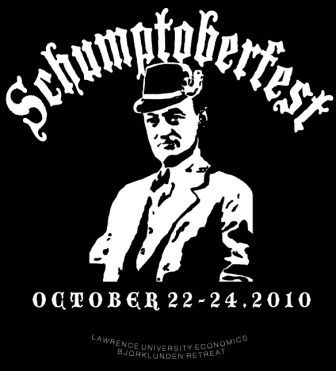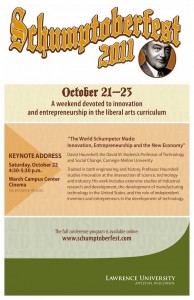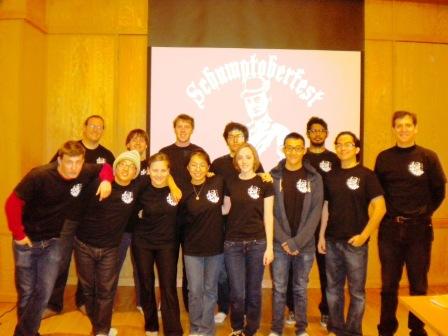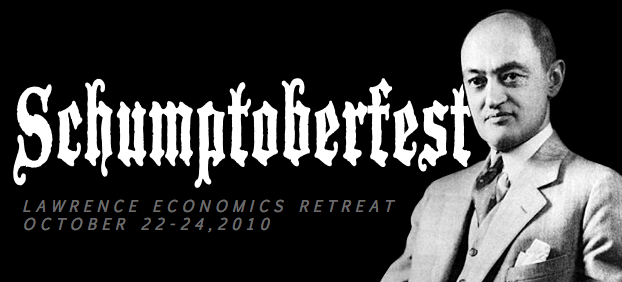 Happy Birthday (posthumously, of course) to Joseph Schumpeter (a.k.a., Jozsi, Schum, Schumy, Schump, Go-Go, and probably some less flattering names as well), born on February 8, 1883.
Happy Birthday (posthumously, of course) to Joseph Schumpeter (a.k.a., Jozsi, Schum, Schumy, Schump, Go-Go, and probably some less flattering names as well), born on February 8, 1883.
We’ve had a lot of fun with Schumpter over the past few years, including several iterations of Schumptoberfest (see here, here, and here), as well as an entire reading group built around him. Let’s hope that we can instill just a little bit of this into our student body:
Economists are at long last emerging from the stage in which price competition was all they saw. As soon as quality competition and sales effort are admitted into the sacred precincts of theory, the price variable is ousted from its dominant position… But in capitalist reality as distinguished from its textbook picture, it is not that kind of competition which counts but the competition from the new commodity, the new technology, the new source of supply, the new type of organization (the largest-scale unit of control for instance)–competition which commands a decisive cost or quality advantage and which strikes not at the margins of the profits and the outputs of the existing firms but at their foundations and their very lives. (Capitalism, Socialism, and Democracy, 84).
We’ll see you for Schumptoberfest 2013.



 The fashion industry, a $200 billion industry in the United States alone, is comprised of nearly 150,000 establishments, ranging in size from large fashion houses to smaller start-ups. Although there are a large number of firms competing in the industry, according to the 2002 Census, five percent of firms in the clothing industry accounted for twenty percent of total revenue and sales. These large firms, , also play an important role in the diffusion of new design trends and the continuation of induced obsolescence, the dynamic force driving the fashion cycle forward; the influence of large firms contributes to the top-down structure of the industry.
The fashion industry, a $200 billion industry in the United States alone, is comprised of nearly 150,000 establishments, ranging in size from large fashion houses to smaller start-ups. Although there are a large number of firms competing in the industry, according to the 2002 Census, five percent of firms in the clothing industry accounted for twenty percent of total revenue and sales. These large firms, , also play an important role in the diffusion of new design trends and the continuation of induced obsolescence, the dynamic force driving the fashion cycle forward; the influence of large firms contributes to the top-down structure of the industry.


 n the second post here, I will simply concentrate on Chapter VII of Capitalism, Socialism, and Democracy, and try to tie together some themes for the weekend. For our purposes, I have numbered the paragraphs 1-13.
n the second post here, I will simply concentrate on Chapter VII of Capitalism, Socialism, and Democracy, and try to tie together some themes for the weekend. For our purposes, I have numbered the paragraphs 1-13. This is a first in a series of short posts to guide the Schumptoberfest readings. I included these readings literally to give you an introduction to Schumpeter and the “Schumpeterian Hypotheses.”
This is a first in a series of short posts to guide the Schumptoberfest readings. I included these readings literally to give you an introduction to Schumpeter and the “Schumpeterian Hypotheses.” We would like to engage students who have a good understanding of micro theory and are interested in innovation and entrepreneurship. The readings dovetail nicely with my Economics 400 (IO) and 450 (theory of the firm) courses.
We would like to engage students who have a good understanding of micro theory and are interested in innovation and entrepreneurship. The readings dovetail nicely with my Economics 400 (IO) and 450 (theory of the firm) courses.